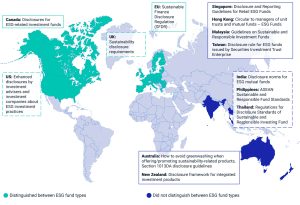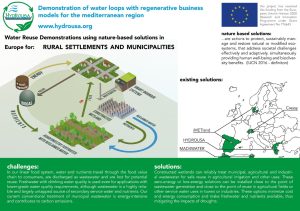Alternative Investments in Singapore: Broadening Horizons Beyond Traditional Assets
4 min read
The financial landscape in Singapore has been evolving rapidly, particularly in the realm of investment opportunities. While traditional assets like stocks, bonds, and real estate have long been the mainstay for investors, there is an increasing shift toward alternative investments. As more people look to diversify their portfolios and reduce their exposure to market volatility, alternative assets have become an attractive choice for many. This article explores the alternative investment landscape in Singapore, detailing its growing popularity, the types of investments available, the risks and challenges involved, and how investors can get started.
Understanding Alternative Investments
Alternative investments encompass a broad range of assets that are not part of the traditional asset classes. These can include private equity, hedge funds, commodities, real estate investment trusts (REITs), cryptocurrencies, and even art or collectables. Unlike stocks or bonds, which are highly liquid and generally follow more predictable market trends, alternative assets often provide an opportunity for higher returns but come with their own set of risks and challenges.
One of the key appeals of alternative investments is their ability to provide portfolio diversification. Investors looking to protect themselves from market fluctuations often seek alternatives because these assets may not be directly correlated with the performance of traditional markets. For instance, while stock markets may face a downturn, gold or fine art may see an increase in value, offering a buffer for those invested in such assets. Get more info to get started today.
Popular Types of Alternative Investments in Singapore
Private equity and venture capital investments allow individuals and institutional investors to participate in the early stages of company development. These investments typically involve higher risk but also offer the potential for significant returns. In Singapore, private equity funds have seen growth, particularly in the technology and financial sectors, where innovation and disruption are at the forefront. Investors in this space often focus on high-growth startups, with the understanding that their capital may be tied up for extended periods before realizing returns.
Hedge funds are another common alternative investment vehicle. These funds employ a variety of strategies to generate returns, including short-selling, arbitrage, and leveraging. In Singapore, hedge funds are particularly attractive due to the country’s well-established financial market and sophisticated investor base. Hedge funds provide investors with an opportunity to profit in both bullish and bearish markets, but they come with increased risk and require a deep understanding of market dynamics.
Commodities and precious metals are classic examples of alternative investments that continue to attract investors, particularly in uncertain times. In Singapore, gold has traditionally been viewed as a safe-haven asset. Commodities like oil and agricultural products also offer ways to hedge against inflation or economic instability. As global economic conditions fluctuate, many Singaporean investors turn to commodities to balance their portfolios and protect their wealth from currency devaluation or financial crises.
Factors Driving the Growth of Alternative Investments in Singapore
Singapore’s government has played a crucial role in fostering a conducive environment for alternative investments. The Monetary Authority of Singapore (MAS) has introduced a range of regulatory measures to ensure that the country remains an attractive destination for investment, particularly in emerging asset classes like cryptocurrencies and private equity. Additionally, tax incentives for venture capital and startups have encouraged both local and international investors to allocate funds to new and innovative sectors.
Economic and market conditions have also contributed to the rise of alternative investments. In a low-interest-rate environment, traditional assets such as bonds and savings accounts offer minimal returns, pushing investors to seek higher-yielding opportunities. Moreover, as global markets become more volatile and unpredictable, investors are looking for ways to mitigate risks, and alternative assets often provide a buffer during times of economic uncertainty.
Technological advancements have played a pivotal role in making alternative investments more accessible. Fintech platforms, blockchain technology, and digital asset exchanges have democratized access to markets that were previously difficult for individual investors to tap into. Today, investors can easily trade commodities, cryptocurrencies, and even art through online platforms, making alternative investments more liquid and approachable.
Risks and Challenges of Alternative Investments
One of the main risks associated with alternative investments is liquidity. Unlike stocks or bonds, many alternative assets are not easily traded, meaning that investors may find it difficult to sell their holdings quickly without incurring a loss. This is particularly true for assets like real estate, private equity, and art, where the time horizon for realizing returns can be longer.
Regulatory and legal risks are also a concern, especially with emerging asset classes like cryptocurrencies. The regulatory landscape for many alternative investments is still developing, and changes in laws or policies can significantly impact the value of certain assets. Investors need to stay informed about local regulations and potential changes to avoid unexpected pitfalls.
Conclusion
Alternative investments in Singapore are gaining momentum as more investors seek ways to diversify and grow their portfolios beyond traditional assets. With a broad range of options—ranging from private equity to cryptocurrencies—investors have the opportunity to tailor their investment strategies to meet their unique needs. While the risks associated with these assets should not be underestimated, with careful planning, research, and professional advice, alternative investments can offer substantial rewards.








